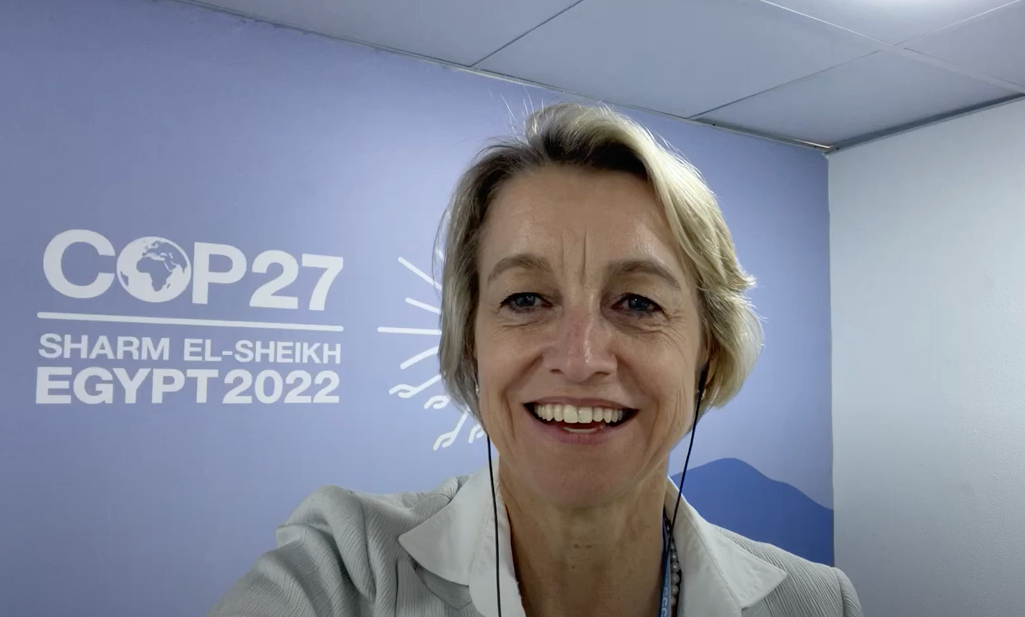Education Commission Executive Director Dr. Liesbet Steer delivered closing remarks at the launch of our latest report produced in partnership with UNICEF and the LEGO Foundation, Add Today Multiply Tomorrow: Building an Investment Case for Early Childhood Education, on November 15, 2022.
This following is the transcript of Dr. Steer’s remarks (watch video above).
Greetings from the COP27 climate meetings in Egypt. On behalf of the Education Commission and our Chair Gordon Brown, I welcome the launch of this important report.
Investing in early years is critical to achieving SDG4 – as well as meeting other 2030 goals including the climate goals.
The Education Commission’s first flagship report, The Learning Generation, highlighted the urgent need for investment in early years. We called on the global community to adopt the principle of progressive universalism. This principle calls on governments and donors with scarce resources to prioritize investment in early years and those children who are most left behind.
Sadly, the world has continued to underinvest. And spending has often been regressive rather than progressive.
This must change.
We cannot accept that 250 million children under the age of five are at risk of not reaching their potential due to ill health, malnutrition, and lack of early stimulation and learning.
We cannot accept that only 3 percent of national education budgets in low- and lower-middle income countries is devoted to early childhood education.
We cannot accept that just 1 percent of total donor aid and just 2 percent of humanitarian funding is spent on early years.
The message from this conference is clear. We must rewire education and invest in early childhood development as a win-win solution.
It is a win-win solution because investments in early years improve learning outcomes;
reduce poverty and inequities; and they improve resilience and social cohesion.
Every dollar spent on Early Childhood Education yields more than 9 dollars in benefits.
The report calls on all of us to add and multiply!
It calls for an increase in investments in low- and lower-middle-income countries from 22 billion dollars annually today to 49 billion dollars annually in the next 7 years. It also calls for more effective and more efficient spending.
How can this be achieved? I’d like to highlight three ways.
First, governments must prioritize early years in domestic spending by adopting a progressive spending approach. This can be done. Countries like Belarus, Bulgaria, Ecuador, Liberia, and Mongolia are spending more than 20% of their education budgets on pre-primary education. As a result, the enrollment rate now stands at more than 80%.
Equity considerations in financing can be achieved through per capita funding mechanisms or dedicated funding for early education community centers.
Second, the international community must step up and increase the share of aid to early years; ideally to 10%. A progressive universalism approach that prioritizes lower levels of education is still a long way from being adopted. Spending on post-secondary education is 25 times higher than spending on early years.
We can do better. A recently released report by Theirworld highlights spending on early childhood education has doubled between 2015 and 2020. And Education Cannot Wait increased its funding for early years from 5% to 9% between 2019 and 2021. Let’s continue these positive trends.
Third, we must develop innovative financing sources and delivery mechanisms to increase investments in early childhood development. This should include results-based approaches such as those pioneered by the Education Outcomes Fund.
We should also include innovative mechanisms such as the recently launched International Financing Facility for Education – IFFEd – which multiplies scarce donor resources 7 times by working with the multilateral development banks.
We can and should also include mechanisms that adopt cross-sectoral approaches including the public and private sector, and working across education, health, and social protection sectors.
This report calls on governments, donors, partners, civil society organizations, teachers, and parents to mobilize investments in Early Childhood Education so all children are able to develop their full potential. Together, we must urgently invest more, better, and creatively in early years and give all the world’s children the best start in life that they so deserve.
Thank you.

